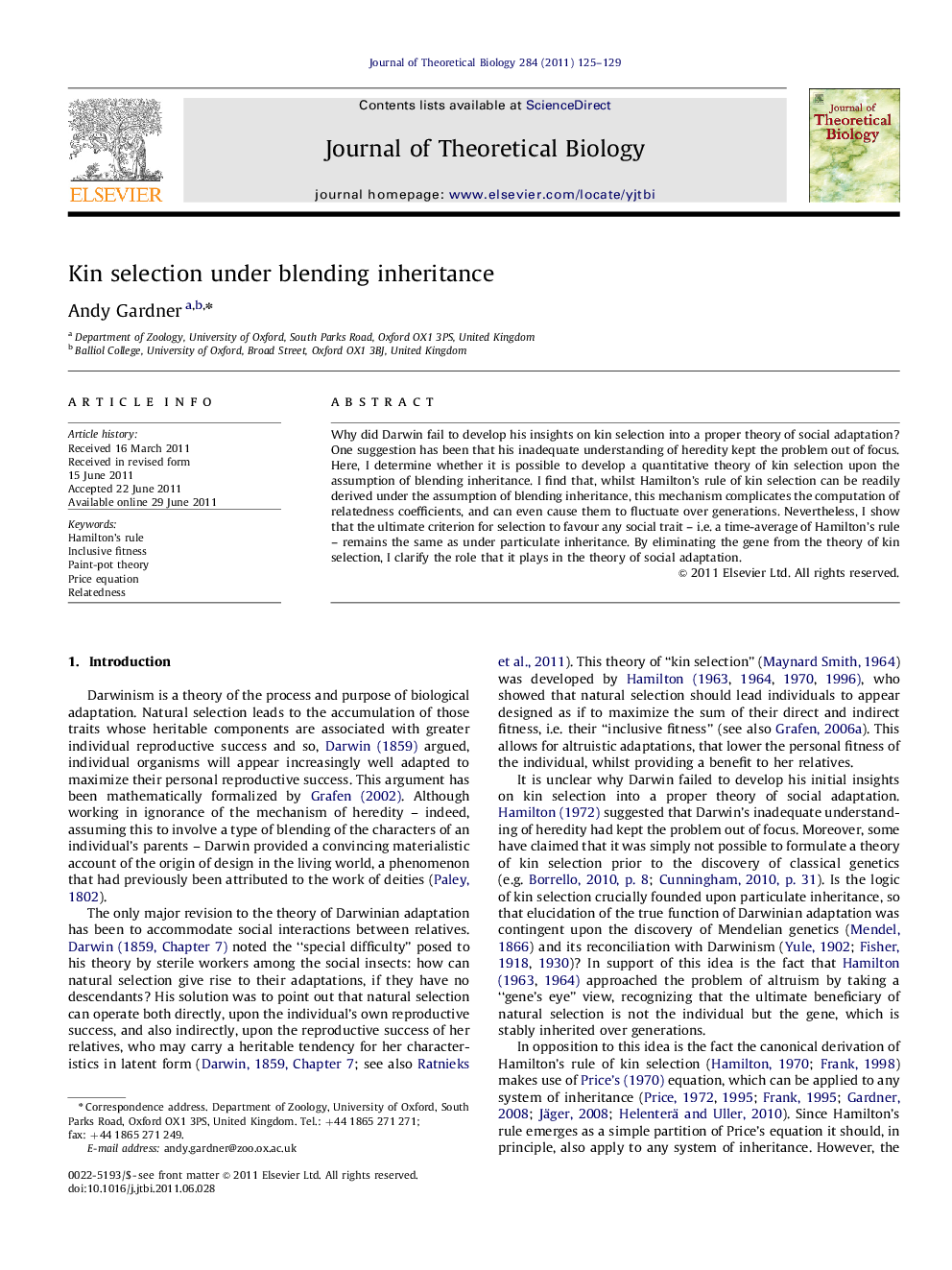| Article ID | Journal | Published Year | Pages | File Type |
|---|---|---|---|---|
| 4496955 | Journal of Theoretical Biology | 2011 | 5 Pages |
Why did Darwin fail to develop his insights on kin selection into a proper theory of social adaptation? One suggestion has been that his inadequate understanding of heredity kept the problem out of focus. Here, I determine whether it is possible to develop a quantitative theory of kin selection upon the assumption of blending inheritance. I find that, whilst Hamilton's rule of kin selection can be readily derived under the assumption of blending inheritance, this mechanism complicates the computation of relatedness coefficients, and can even cause them to fluctuate over generations. Nevertheless, I show that the ultimate criterion for selection to favour any social trait – i.e. a time-average of Hamilton's rule – remains the same as under particulate inheritance. By eliminating the gene from the theory of kin selection, I clarify the role that it plays in the theory of social adaptation.
► Hamilton's rule holds even under the assumption of blending inheritance. ► In principle, kin selection theory could have been developed prior to the discovery of Mendelian genetics. ► Blending inheritance has no impact upon the rationale of social adaptations.
